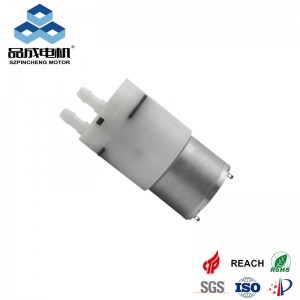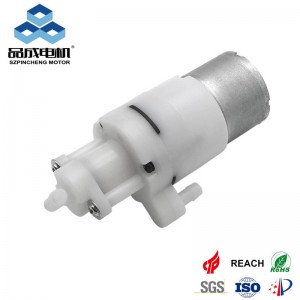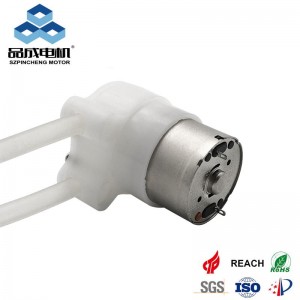In an era where sustainable development has become a global imperative, every technological innovation holds the potential to make a significant impact. Micropumps, with their compact size and remarkable functionality, have emerged as unsung heroes in various sectors, playing a crucial role in promoting sustainable practices. This article delves into the multifaceted contributions of micropumps to sustainable development.
Micropumps in Renewable Energy Systems
One of the key areas where micropumps are making a substantial contribution is in renewable energy systems. For instance, in fuel cell power generation, micropumps are used to precisely control the flow of reactant fluids. This accurate fluid management is essential for optimizing the performance of fuel cells, ensuring efficient energy conversion. By enabling better utilization of renewable energy sources like hydrogen in fuel cells, micropumps help in reducing reliance on fossil fuels, thereby curbing greenhouse gas emissions and promoting a more sustainable energy mix.
In solar power generation and solar heat systems, micropumps are employed to circulate heat - transfer fluids. They ensure that the solar collectors operate at optimal efficiency by maintaining a consistent flow of the fluid, which absorbs and transfers the solar - derived heat. This not only enhances the overall performance of solar energy systems but also increases their lifespan, making solar energy a more reliable and sustainable option for meeting energy demands.
Environmental Monitoring and Conservation
Micropumps play a pivotal role in environmental monitoring, which is fundamental to sustainable development. In air quality monitoring, these pumps are used to collect air samples with great precision. They can accurately control the flow rate and volume of air being sampled, enabling the detection and analysis of even trace amounts of pollutants and hazardous gases. In urban areas, where air pollution is a major concern, the data obtained through micropump - assisted air sampling helps in formulating effective policies to mitigate pollution and protect public health. This, in turn, contributes to a more sustainable urban environment.
When it comes to water quality analysis, micropumps are equally indispensable. They facilitate the efficient and accurate sampling of water from diverse sources such as rivers, lakes, and oceans. By enabling the identification of contaminants like industrial chemicals, agricultural runoff, and biological hazards, micropumps help in safeguarding aquatic ecosystems. The data collected is used to develop strategies for sustainable water management, ensuring the availability of clean water for future generations.
Medical and Healthcare Applications Promoting Sustainability
In the medical and healthcare industries, micropumps are revolutionizing drug delivery systems, which has significant implications for sustainable healthcare. For example, in insulin pumps used by diabetes patients, micropumps provide precise control over the delivery of insulin. This accuracy ensures that patients receive the correct dosage, enhancing the effectiveness of treatment and improving patient quality of life. By enabling more personalized and efficient drug delivery, micropumps reduce the waste of medications, which is a more sustainable approach in the healthcare sector.
In medical diagnostics, especially in the field of microfluidics, micropumps are essential for handling minute biological samples. In applications like DNA sequencing and early disease detection, their ability to precisely manipulate small fluid volumes is crucial for accurate results. This not only leads to better medical outcomes but also reduces the need for large - scale sample collection, conserving resources and minimizing the environmental impact associated with medical testing.
Industrial Efficiency and Sustainability
In industrial processes, micropumps contribute to sustainability by enhancing efficiency. In chemical processing, for example, they are used for accurate chemical dosing. In industries such as pharmaceuticals, food processing, and chemical manufacturing, precise addition of reactants or additives is vital for maintaining product quality and process efficiency. Micropumps ensure that the right amount of chemicals is used, minimizing waste and reducing the environmental impact associated with over - usage or incorrect dosing.
In cooling systems, particularly in electronics and machinery, micropumps play a key role. They efficiently circulate coolants in confined spaces, helping to maintain optimal operating temperatures. This not only prolongs the lifespan of equipment but also reduces the energy consumption associated with cooling. In sectors like semiconductor manufacturing and data centers, where equipment reliability and energy efficiency are critical, the use of micropumps contributes to a more sustainable industrial operation.
Manufacturing Practices and Sustainability
Micropump manufacturers themselves are increasingly adopting sustainable practices. Many companies are committed to reducing their environmental impact throughout the product life cycle. They recycle various materials used in production, minimizing waste. Energy - saving measures, such as the use of motion - detection lights in manufacturing facilities, are also implemented. By continuously improving their manufacturing processes, micropump manufacturers are not only reducing their own carbon footprint but also setting an example for other industries.
Moreover, the development of more energy - efficient micropump technologies is an ongoing effort. As these pumps become more efficient, they consume less energy during operation in different applications, further contributing to overall energy conservation and sustainable development.
In conclusion, micropumps have a far - reaching impact on sustainable development. Their applications in renewable energy, environmental monitoring, medical and healthcare, and industrial processes all contribute to a more sustainable future. As technology continues to advance and more innovative uses for micropumps are discovered, their role in promoting sustainable development is only set to grow, making them an essential component in the global drive towards a greener and more sustainable world.
you like also all
Read More News
Post time: Apr-09-2025




